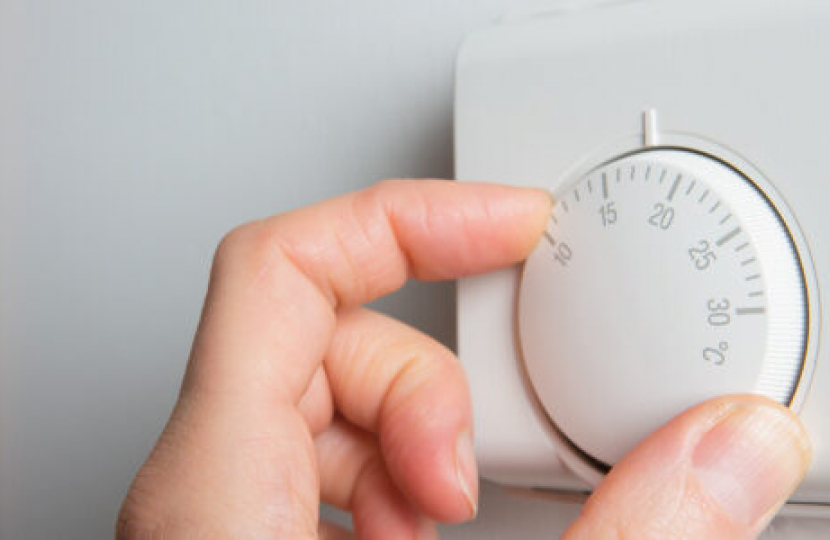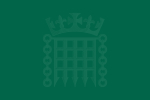
Countries around the world are facing rising goods and energy prices, inflation and cost of living pressures after the pandemic and Putin’s invasion of Ukraine.
We know people are worried so the government is offering help for households. See what cost of living support you could be eligible for.
👉🏽 Please click on the following link to find out more information: www.helpforhouseholds.campaign.gov.uk 👈🏽
Many of the Help for Households measures and policies, including Energy Bill Support and Cost of Living Payments, are the responsibility of the UK Government.
If you live in Scotland, Wales or Northern Ireland there may be additional or alternative devolved policies and help available. Please also visit the relevant campaign website where you live.
The Money Helper service provides free, confidential and impartial help tailored to individual needs. Use the Money Helper service
MARCH 2023 UPDATE: Energy bills support extended for an extra three months
The Energy Price Guarantee, which is protecting households by capping typical energy bills at £2,500, will be maintained at the same level for a further three months over April, May, and June 2023, worth £160 in total for a typical household.
The Chancellor is announcing the extension today (15 March) as part of his Spring Budget, which focuses on easing the impact of rising prices, delivering on our promise to halve inflation, and growing the economy by supporting more people into work.
From July, households will pay the lower of the Ofgem Price Cap or the Energy Price Guarantee, which will revert to £3,000 from July 2023 until the end of March 2024.
💡Help with your energy bills💡
Energy Price Guarantee
From 1st October, a new ‘Energy Price Guarantee’ will reduce the unit cost of electricity and gas for UK households. This is automatic and applies to all households. Beware of scams – there is no need to apply and you will never be asked for bank details.
This is in addition to the £400 energy bills discount for all households. 👉🏽 Find out more information
Energy Bills Support Scheme
£400 off energy bills for households in Great Britain from this October. This automatic, non-repayable discount will be applied in six instalments between October 2022 and March 2023 to help households through winter.
There is no need to apply for the scheme and you will not be asked for your bank details. 👉🏽 Find out more information
Support and guidance with your energy bills and supplier
👉🏽 Visit Ofgem for more information
Cost of Living Payment
Households on means tested benefits, including Universal Credit, Pension Credit and Tax Credits, will receive a payment of £650 this year, paid automatically in two instalments. The first payment of £326 was made in summer. The second payment of £324 will be made by DWP to eligible customers between 8 and 23 November, and by HMRC between 23 and 30 November (to customers receiving tax credits only and no other eligible DWP benefits).
This is in addition to the £400 discount on energy bills. 👉🏽 Find out more information
Disability Cost of Living Payment
Individuals on disability benefits will receive a one-off £150 payment in September to help with extra costs, such as for specialist equipment or transport. This is in addition to the £650 Cost of Living Payment for disabled people who also receive means tested benefits. 👉🏽 Check if you’re eligible for the Disability Cost of Living Payment
Pensioner Cost of Living Payment
In the winter months pensioners can get between £100 and £300 to help pay heating bills. This winter, they will also receive an extra one-off £300 Pensioner Cost of Living Payment, which will be paid as an automatic top-up to the Winter Fuel Payment. 👉🏽 Check if you’re eligible for the Pensioner Cost of Living Payment
Winter fuel payments
In the winter months pensioners can get between £100 and £300 to help pay heating bills. This winter, they will also receive an extra one-off £300 Pensioner Cost of Living Payment, which will be paid as an automatic top-up to the Winter Fuel Payment. 👉🏽 Check if you’re eligible for the Winter Fuel Payment
Cold weather payments
£25 extra a week if you’re getting certain benefits is available during the winter when the temperature is zero or below for more than seven days. 👉🏽 Check if you’re eligible
Improving energy efficiency in your home
👉🏽 Use our calculator to find ways to save energy in your home
Warm Home Discount
This autumn nearly three million low-income households are eligible for a £150 rebate on their winter electricity bills. 👉🏽 Check with your energy supplier to see if you are eligible
0% VAT on energy saving materials
It will be cheaper for you to install energy saving materials such as thermal insulation or solar panels with 0% VAT for the next five years, helping to improve energy efficiency in your home and keep heating bills down. 👉🏽 Find ways to save energy in your home
Help to Heat
You may be eligible for grants to improve the energy efficiency of your home, which could help to reduce your energy bills. Government is investing in energy efficiency schemes which are being delivered by local authorities. 👉🏽 Find energy grants for your home
🏠 Household costs 🏠
Cost of Living Payment
Households on means tested benefits, including Universal Credit, Pension Credit and Tax Credits, will receive a payment of £650 this year, paid automatically in two instalments.
The first payment of £326 was made in summer. The second payment of £324 will be made by DWP to eligible customers between 8 and 23 November, and by HMRC between 23 and 30 November (to customers receiving tax credits only and no other eligible DWP benefits).
This is in addition to the £400 discount on energy bills. 👉🏽 Find out more information
Disability Cost of Living Payment
From 20th September, 6 million people who are paid certain disability benefits will receive an automatic one-off £150 payment. The payment will help disabled people with the rising Cost of Living acknowledging the higher disability-related costs they often face, such as care and mobility needs.
This is in addition to the £650 Cost of Living Payment for disabled people who also receive means tested benefits. 👉🏽 Check if you’re eligible for the Disability Cost of Living Payment
Pensioner Cost of Living Payment
In the winter months pensioners can get between £100 and £300 to help pay heating bills. This winter, they will also receive an extra one-off £300 Pensioner Cost of Living Payment, which will be paid as an automatic top-up to the Winter Fuel Payment. 👉🏽 Check if you’re eligible for the Winter Fuel Payment
Council Tax rebate
If you live in Council Tax bands A to D in England you’ll get £150 back from your Council Tax bill (4 out of 5 households in England). For most people the rebate is automatic, however if you don’t pay your Council Tax by direct debit then get in touch with your Council. 👉🏽 More information on the Council Tax rebate
Household Support Fund
£1.5 billion has been made available to support the most vulnerable to cover their essential daily costs, like energy bills. Recipients include pensioners and families with children. Local authorities can also issue food vouchers to families during the school holidays. 👉🏽 Contact your local Council to check if you’re eligible for the Household Support Fund
Budgeting loans
You may be eligible for a Budgeting Loan if you’ve been on certain benefits for 6 months. This can be used for household items, rent in advance and travelling costs. 👉🏽 Check if you’re eligible for a Budgeting Loan
Cheaper phone and broadband
You may be eligible to move onto a social tariff if you’re struggling to afford your broadband or phone services.👉🏽 Check the Ofcom website to see if you can switch to a social tariff
Help paying your Water Bill
Many water companies run hardship schemes or fund independent charitable trusts which can help you pay your bills.👉🏽 Get support paying your Water Bill
TV Licence fee freeze
The TV licence fee has been frozen at £159 until 2024. This means households will not see any change to the licence fee until 1 April 2024. 👉🏽 Find out more information on free TV Licence for over 75‘s
Get help with all or part of your rent
You may get help with all or part of your rent. There’s no set amount of housing costs support and what you get will depend on whether you rent privately or from a council or housing association.👉🏽 Use a benefits calculator to find out if you can get benefits to help pay your rent
Universal Credit if you’re unemployed or on low income
If you and/or your partner are responsible for paying rent for the home you live in, or if you have a mortgage, Universal Credit may provide help towards the cost. 👉🏽 Check if you are eligible for Universal Credit
Housing benefit
Housing Benefit can help you pay your rent if you are state pension age or you’re in supported, sheltered or temporary accommodation. 👉🏽 Check if you are eligible for Housing Benefit
Support for additional housing costs
You may be able to get support for additional housing costs if you’re already claiming Housing Benefit. 👉🏽 Contact your local Council to find out what support you can get
Council Tax support schemes
Councils run support schemes to help people on low incomes with their Council Tax bill. 👉🏽 Contact your local Council to find out what support is available
Discretionary Housing Payments
If you are on certain benefits you may be eligible for Discretionary Housing Payments which provide financial support to help with rent or housing costs. 👉🏽 Check if you’re eligible for a discretionary housing payment
Get help with interest payments on mortgages or loans
If you’re a homeowner on qualifying benefits, you might be able to get help towards interest payments on your mortgage or loans you’ve taken out for certain repairs and improvements to your home. 👉🏽 Check if you’re eligible for Support for Mortgage Interest
95% mortgages for homes up to £600,000
You may be eligible to borrow up to 95% of the cost of a property worth up to £600,000 thanks to the mortgage guarantee scheme.👉🏽 Contact mortgage providers to see if you’re eligible.
👨👩👧👦 Family support 👨👩👧👦
Find out what benefits and financial support you may be able to get
👉🏽 Check what benefits and financial support you can get
Tax-free childcare
You can get up to £500 every 3 months (up to £2,000 a year) for each of your children to help with the cost of childcare. 👉🏽 Claim tax-free childcare
30 hours free childcare
Eligible working families in England with 3 and 4 year old children can receive 30 hours of free childcare a week. 👉🏽 Visit Childcare Choices for more information
15 hours free childcare
Families in England who have 2 year old children and are on certain benefits can get 15 hours of free childcare a week. All families with children aged 3 and 4 can also access 15 hours of free childcare a week. 👉🏽 Visit Childcare Choices for more information
Child Benefit
You can claim Child Benefit if you’re responsible for bringing up a child who is:
- under 16
- under 20 if they stay in approved education or training
Only one person can get Child Benefit for a child. It’s paid every 4 weeks and there’s no limit to how many children you can claim for. 👉🏽 Claim Child Benefit
Claim back childcare costs
You may be able to claim back up to 85% of your childcare costs if you’re eligible for Universal Credit, with up to £646 back each month for one child or £1,108 for 2 or more children. 👉🏽 Find out more about claiming back childcare costs
Apply for free school meals
Free school meals are available to pupils in England during term time if parents get certain benefits. 👉🏽 Check if your child can get free school meals
Holiday activities and food programme
You can get access to free activities and food for your children in the holidays if they receive free school meals. The programme runs through the Easter, Summer and Christmas school holidays this year. 👉🏽 To find out more visit the Education Hub or contact your local Council.
National Breakfast Clubs
All participating schools will receive a 75% government subsidy for breakfast club provision, with 25% from other funding streams. 👉🏽 Find out more about the National School Breakfast Programme
Household Support Fund
£1.5 billion has been made available to support the most vulnerable to cover their essential daily costs, like energy bills. Recipients include pensioners and families with children. Local authorities can also issue food vouchers to families during the school holidays. 👉🏽 Contact your local Council to check if you’re eligible for the Household Support Fund
Claim Healthy Start vouchers
If you’re more than 10 weeks pregnant or have a child under 4, you may be able to get help to buy healthy food and milk. 👉🏽 Check if you’re eligible for Healthy Start vouchers
Get help with maternity costs
You could claim a one-off payment of £500 to help towards the costs of having a child. 👉🏽 Check if you’re eligible for the Sure Start Maternity Grant
💷 Income support 💷
Find out what benefits and financial support you may be able to get
Check what benefits and financial support you can get
Increasing the level at which you pay National Insurance
From July, employees who earn £36,600 or under (around 70% of workers) will pay less National Insurance. A typical employee will save over £330 a year.
This means you can earn £12,570 a year completely tax-free.
Increasing your pay
The National Living and National Minimum Wage rates rose in April. Check your pay to make sure you are getting the pay rate you’re entitled to.👉🏽 Check your pay
Check if you’re eligible for Universal Credit
If you’re on low income, out of work or cannot work you may be eligible for Universal Credit. The government has made changes to allow working families to keep more of their money. 👉🏽 Check if you’re eligible for Universal Credit
Claim Marriage Allowance
Marriage Allowance allows you to transfer 10% (£1,260) of your personal tax allowance to your husband, wife or civil partner if you earn less than the personal tax allowance, which is usually £12,570. 👉🏽 Find out about Marriage Allowance
Extra money available for carers
You could get £69.70 a week if you care for someone for at least 35 hours a week and they get certain benefits. You do not have to be related to, or live with, the person you care for. 👉🏽 Check if you’re eligible for the Carer’s Allowance
Pension Credit for those on low income
You could get extra money to help with your living costs if you’re over State Pension age and on a low income: even if you have savings or own your own home. 👉🏽 Check if you’re eligible for Pension Credit
Get help with savings if you’re on a low income (Help to Save)
Help to Save is a savings account. If you’re entitled to Working Tax Credit or you’re receiving Universal Credit, you can get a bonus of 50p for every £1 you save over 4 years. 👉🏽 Find out about Help to Save
Child Trust Funds
A Child Trust Fund is a long-term tax-free savings account for children born between 1 September 2002 and 2 January 2011.
For those who hold an account but do not know the Child Trust Fund provider, or if you’re unsure whether you have one or not, we can help you find out. 👉🏽 Find a Child Trust Fund
Get help if you cannot pay your tax bill
Contact HMRC as soon as possible if you cannot pay your tax bill. We’re here to help, and you may be able to pay what you owe in instalments, depending on your circumstances and what you can afford. 👉🏽 Find out what to do if you cannot pay your tax bill on time
👷 Help finding work 👷
Get help looking for jobs
You can search and apply for jobs across a range of industries across the UK through our Find a job website. 👉🏽 Search and apply for jobs
Personalised job support
You can get personalised support, tips and advice to find your next opportunity through JobHelp. 👉🏽 Get support, training and advice on finding your next job
Claim tax relief on work-related expenses
Find out how to claim tax relief on money you’ve spent on things like work uniform and clothing, tools, subscriptions or business travel. 👉🏽 Claim Income Tax relief for your employment expenses (P87)
🌱 Energy saving advice 🌱
Alongside the support that the government is providing through the Energy Price Guarantee and the Energy Bills Support Scheme, there are some simple actions you may not be aware of that could help you save further money on your energy bills:
Reduce your boiler flow temperature
Boilers often have a default temperature that is sent to radiators which is set higher than needed. This reduces the efficiency of your boiler. Depending on the type of boiler you have, its efficiency can be improved by locating the ‘flow temperature’ dial/setting on the boiler and adjusting it to a lower temperature of 60 degrees. Reducing your boiler flow temperature could save you approximately £100 per year.
Reducing your boiler’s flow temperature is not the same as reducing the temperature on your thermostat and won’t reduce the temperature of your home but may increase the time it takes for your home to reach the target temperature on your thermostat. People over 65, or with pre-existing health conditions, may want to set a slightly higher flow temperature before lowering it further to ensure your home warms up quickly enough.
Find out how to reduce your flow temperature by following Nesta’s simple guide.
Turn down radiators when rooms aren’t in use
Most radiators are fitted with valves that control the temperature of a room by changing the flow of hot water to the radiator. These valves are often misused as ‘on/off’ switches, and in rooms which aren’t used all day such as bedrooms, or rooms which you don’t use regularly, these can often be set too high.
These valves are usually marked with a scale from 0 – 6, where zero (0) is off and six (6) is fully open. They can be adjusted by twisting them clockwise or anti-clockwise. Aim for the lowest setting that keeps the room to your desired temperature. A lower setting reduces the volume of hot water, using less energy and saving you money – approximately £70 per year.
Stop heat escaping through doors and windows
Draught-proofing is one of the cheapest and most effective ways that you can take to stop the heat escaping and reduce your energy bills by approximately £70 per year:
- By blocking unwanted gaps around windows, doors and the floor that let the cold air in and warm air out, you’ll use less energy to heat your home. Energy Saving Trust provide advice on how to draught proof your property
- Window film is a form of temporary secondary glazing. By installing window film on your windows, you can help stop heat escaping through the glass. You can buy window film at most hardware shops and online and install it yourself or with the help of a professional.
Further energy saving advice
Ofgem has suggestions on how to save money by learning how to reduce energy use and prevent heat loss. More energy saving tips










